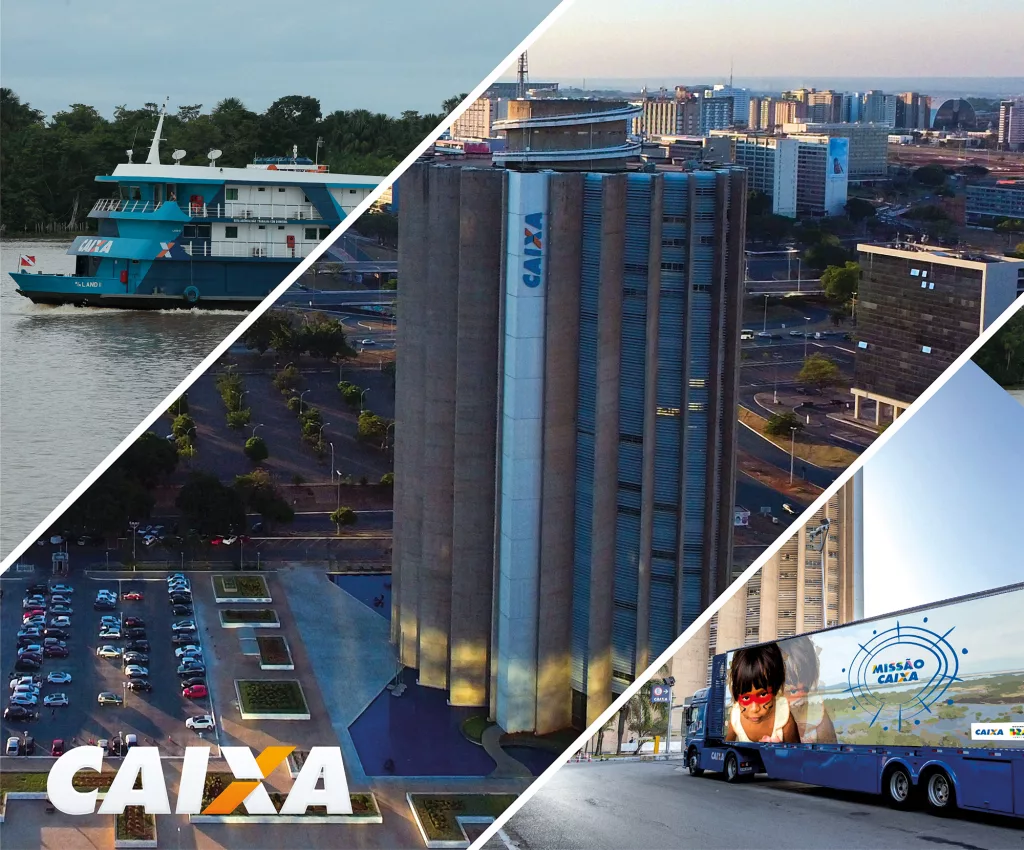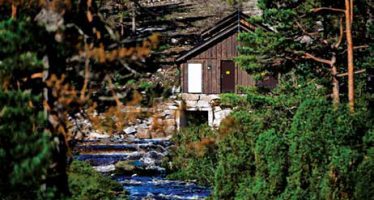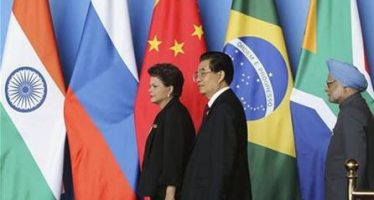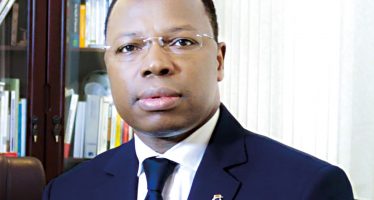A Country Reborn, Held Close by a Caring and Compassionate Bank
As Brazil exits an oppressive regime, CAIXA is there to ease the transition to inclusion and protection for people and planet.
CAIXA Econômica Federal has a wholesome raison d’etre: to promote a fraternal, just, and egalitarian society that conserves and values Brazil’s environmental, cultural, and social heritage.
The country holds the lion’s share of the planet’s natural wealth, which puts it in a position to lead solutions to the climate emergency and environmental destruction.
And CAIXA cannot — and will not — act or make a decision without considering the sustainability agenda. The solid, historical institution is fundamental to the financial system in Brazil.
 CAIXA is the main executor of public policies and works with the federal government to promote sustainable development, with a focus on collective wellbeing. CAIXA resumes its historical role by focusing on public policies, products and services which will return Brazil to its leading position on the global stage. It focuses on issues related to sustainability, job creation, sustainable housing, infrastructure, agriculture, energy transition, and the promotion of citizenship and dialogue.
CAIXA is the main executor of public policies and works with the federal government to promote sustainable development, with a focus on collective wellbeing. CAIXA resumes its historical role by focusing on public policies, products and services which will return Brazil to its leading position on the global stage. It focuses on issues related to sustainability, job creation, sustainable housing, infrastructure, agriculture, energy transition, and the promotion of citizenship and dialogue.
The bank maintains and establishes relations with national and international partners with technical capabilities and financial resources that can accelerate the implementation of this agenda. Some actions are on the immediate horizon.
CAIXA’s accreditation with the Green Climate Fund, a global investment platform created to support developing countries to meet their goals in the Paris Agreement, will be resumed. The bank provides public support with grants from the CAIXA socio-environmental fund to generate female-focused employment and income, promote the bioeconomy and local production arrangements, and protect vulnerable groups.
With transparency as a guiding force, the bank defines and communicates its institutional commitments and goals so that the public can contribute to, monitor, and measure progress.
“A new CAIXA has been born, for a new Brazil — with a spirited commitment to rebuilding the country and improving quality of life.”
With its double identity of bank and state entity, CAIXA plays a fundamental role for the nation’s development. As CEO Maria Rita Serrano points out: “Financial intermediation should serve the economy to foster production, services, jobs and improve the lives of the population … (and) the work of state-owned banks is fundamental. State investments can be factors of economic, employment, and income stabilisation, always with sustainability and the neediest people in mind.”
CAIXA has some 4,200 branches staffed by 86,000 employees across the country, as well as 13,000 lottery outlets garnered during its 162 years of history. It overcame recent management turmoil with solid governance, credibility, and the commitment of its family of employees. Anchored on these assets, CAIXA will expand its financial instruments to reduce inequalities and poverty while preserving ecosystems and biodiversity.
A new CAIXA has been born, for a new Brazil — with a spirited commitment to rebuilding the country and improving quality of life. The reorganisation allows the bank to excel in managing the government’s income transfer programmes. It is expanding partnerships with states and municipalities to develop infrastructure projects while promoting financial inclusion, advancing technology to improve customer service and care, and balancing commercial operations to invest in cultural projects. There is an ongoing focus on labour relations and the social and natural diversity of Brazil.
Recently, the world has been appalled at the vulnerability and neglect of indigenous peoples of the Amazon. Yanomami populations were left in an atmosphere of destruction and neglect that was aggravated by the pandemic and the Jair Bolsonaro administration that encouraged the invasion of their lands.
CAIXA immediately implemented policies to support the affected people, and sent a “truck branch” to serve 30,000 families in the states of Amazonas and Roraima. The actions will give indigenous people access to federal government benefits, and the support of CAIXA.
The truck branch reaches isolated regions affected by climate catastrophe or in vulnerable situations. In addition to the trucks, CAIXA also has six boat branches that travel the waters of the Amazon.
These are examples of how a state-owned bank can make a difference with more than financial support. Combining governance, credibility, and responsibility, public banks such as CAIXA can do for the Brazilian population what some financial entities are not willing to do. It represents the sustainable arm of the state in the financial market, making a real difference to the lives of the population.
And this is just the beginning. Aligned with the agenda of the reborn Brazilian state, CAIXA will drive social transformation, where natural capital is valued as a strategic asset for the country — and the world.
You may have an interest in also reading…
enso GmbH: Investing in Hydro Power
Alternative Investment Fund Manager enso manages hydropower, the most efficient form of renewable energy. Investing in hydropower signifies investing in
BRICS Countries Crystalize Spirit of Practical Cooperation at Delhi Summit
By Xinhua writers Liu Chen, Mao Xiaoxiao, Wu Qiang As the Fourth BRICS leaders meeting drew its curtain Thursday in
African Finance Evolution: It May Not Be Televised Yet, but the World Is Certainly Taking Note
Burkina Faso-based Fidelis Finance specialises in meeting leasing, credit, factoring, surety and payment guarantee needs — especially those of West
















































































